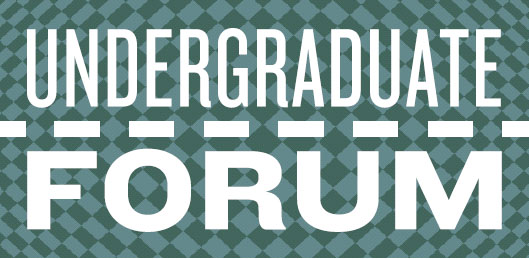Breakfast Banters
Sunday
What's up with student politics?
SUNDAY
Can films change the world?
In association with Culture Wars Forum and produced by
Lecture Theatre 1, 10.00 - 10.45 on Sunday 29 October 2006
Films have the potential to reach large and widespread audiences. They are both part of and shape popular culture and can affect people’s ideas and opinions. But can they change the world? Or would that be a presumptuous and pretentious claim? Some say that Hollywood has had a political reawakening since 9/11. The 2005 Oscars were dominated by films that ‘tackle issues’. In Europe, the 2006 Cannes Film Festival was proclaimed ‘the political Cannes’. Documentaries have found new audiences in cinemas, many adopting a campaigning stance on everything from the Iraq war to junk food. It seems that contemporary film producers, directors and actors are using their medium to raise awareness amongst their audience. But are they giving us any great political insights into the workings of the world and how to affect it?
Can films really change the way individuals think, not just how they feel, about important issues? If they can, does this mean films have the potential to have a profound impact upon society? Can a film go beyond being a political statement to become a political force for change? And can it do so without turning art into crass propaganda? Should filmmakers try to change the world, rather than merely reflecting it?
Josh Appignanesi, film writer and director, Song of Songs
Sarfraz Manzoor, writer, broadcaster and documentary film maker
Beadie Finzi, director, BRITDOC Festival; independent documentary producer/director
Chair: Nathalie Rothschild, editorial assistant, spiked; film reviews editor, Culture Wars
|
spiked recommends:
|
Recommended readings:
- Mark Kermode Sorry Ma'am, but you don't belong in a picture palace The Observer 24 September 2006
- Gaby Wood Hollywood's new politics Guardian 08 January 2006
- David Sterritt Now showing: crusading films Christian Science Monitor 13 June 2003
- Lisa Nesselson Politics de rigeur at fest Variety 11 May 2003
For more recommended readings please click here...
What's up with student politics?

Sponsored by The Hive, in association with the Academy of Ideas Undergraduate Forum and produced by Tom Gartrell & Robin Walsh
Seminar Space, 10.00 - 10.45 on Sunday 29 October 2006
Everyone is familiar with the image of the student radical, ready to pass a resolution or stage an occupation at the drop of a hat. But does this kind of student activism still exist in the 21st century?
Earlier this year, students across the country greeted industrial action by lecturers with the wail ‘mark our work’, a far cry from the solidarity of old. Student union elections are more personality led and have lower turnouts than ever before. Student unions have been in the vanguard of smoking bans and other initiatives, but unable to save science departments being closed all over the country.
But have things really changed that much, or does student politics just take a different form? Have the traditional left-right disputes of the past been replaced by single issue campaigns? If students are apathetic, is this specific to the university campus, or does it simply reflect the depoliticised times we live in? Has being a student become just an extended (drunken) childhood, or does it still mean intellectual engagement with the world around you?
Emily Hill, freelance writer; spiked, Dazed and Confused
Lee Jones, committee member, Pro-Test; DPhil student, University of Oxford
Daryn McCombe, president, King's College Students' Union, King's College London
Chair: Tom Gartrell, assistant treasurer, Pro-Test; biology student, New College, University of Oxford
|
spiked recommends:
|
Recommended readings:
- The Idea of a University BBC Radio 4
- Gary Younge Young peoples protests are easy to mock, but ignore them at your peril Guardian 12 June 2006
- Kat Fletcher Something to be proud of Guardian April 2006
For more recommended readings please click here...
What do we want from science?
Sponsored by Novo Magazin and produced by Tony Gilland
The Café, 10.00 -10.45 on Sunday 29 October 2006
Today we are accustomed to a constant stream of science stories hitting the headlines, sometimes related to hopes for new medical treatments, or perhaps more often in relation to fears about threats to human health and the environment. Everyone from environmental campaigners to governments argues that science is vital to our future and solving the problems we face today. But expectations of science and scientists vary widely. Greenpeace, for example, argues that far too much money has been spent on the genetic engineering of plants, which it regards as a risky technology, and far too little on soil ecology research. Others are frustrated that Europe has been slow to adopt GM technology when the United States and others have been employing it for around ten years. Heated debates reverberate across national borders about the approach we should take to climate change, how strict food safety regulations should be, or the morality of harvesting human embryonic stem cells for medical research. The Bush administration has been widely criticised for politicising science, but they hardly seem to be alone! Amid all this controversy how can we best harness the power of science to transform our lives for the better? Join a panel of international speakers to debate the issues.
Thomas Deichmann, editor, Novo Magazin; freelance writer on science and society; co-author with Detliv Ganten and Thilo Spahl, Wissenschaft: alles was man wissen muss [Science: all you need to know] (2005)
Jon Entine, adjunct fellow, American Enterprise Institute; author, Taboo: Why Black Athletes Are Better and Why We're Afraid to Talk About It (2001) and Abraham's Children (2007)
Matthew Syed, journalist, The Times; commentator, BBC and Eurosport
Myles Allen, principal investigator, climateprediction.net; review editor, 4th Intergovernmental Panel on Climate Change (IPCC) Report
Chair: Tony Gilland, science and society director, Academy of Ideas; national co-ordinator, Debating Matters
|
spiked recommends:
|
Recommended readings:
- Hans von Storch and Nico Stehr Exaggerated Science: How Global Warming Research is Creating a Climate of Fear Der Spiegel 24 January 2005
- Politicizing Science, Sixties-Style The New Atlantis Autumn 2004/Winter 2005
For more recommended readings please click here...



